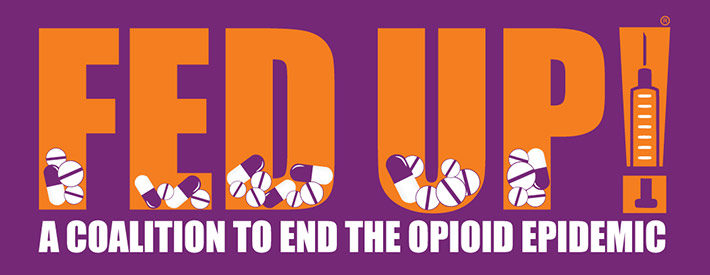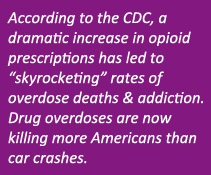Opioid settlement funds are supposed to be kept separate and to be used for education, prevention, treatment, and harm reduction.
But nothing in the settlement agreement prevents states or counties from using the Settlement Funds to pay for programs that are already funded while moving the money that is currently paying for these programs back into general funds!
Thirteen states and Washington D.C. have made “no supplantation” commitments to protect the opioid settlement money for its intended purposes: Connecticut, Delaware, Kansas, Maine, Maryland, Massachusetts, Michigan, Nevada, New Jersey, New York, Vermont, Virginia, and Wisconsin.
If your state is not on this list, the Opioid Settlement Funds in your state are vulnerable to misuse.
DON’T LET THIS ISSUE GET OUT OF HAND!
Call your state legislator today to set up a meeting. Let them know that the settlement funds were meant to supplement existing sources of funding, not supplant them, and that you want them to introduce “no supplantation” legislation for the Opioid Settlement Funds.
If you can’t meet with the legislator, meet with one of their aides. If you can’t get a meeting set up, write them! (For a sample letter, see below.)
Feel free to get back to us with any questions at [email protected].
MAKE EVERY PENNY COUNT!
BACKGROUND
The 1998 Tobacco Settlement resulted in payments to the states of $206 billion over 25 years. But only 2% of that money has gone to tobacco prevention and cessation programs!
The Opioid Settlement Agreement was supposed to be different. Funds could only be used to pay for projects directed toward opioid remediation.
FED UP! has been concerned from the beginning about misuse of these funds and has focused attention on this issue with our Make Every Penny Count campaign.
We only recently learned that there is an even greater threat to the settlement money. Unless there are specific state laws, states, counties, and cities can use the Opioid Litigation Settlement money to pay for programs that are already being paid for, and then use the money that is currently paying for these programs for some other purpose. This is called “supplantation” and the result is no net gain in funding for opioid remediation.
John Oliver devoted his May 12th program to misuse of the Opioid Settlement Funds. It’s at https://www.youtube.com/watch?v=Io0yuH1CiA0. He calls supplantation an “accounting trick.”
Some states have passed strong “No supplantation” laws. Connecticut is an example: Connecticut Public Act No. 22-48, Section 2 (f) 6 states:
“Moneys expended from the [Opioid Settlement Fund] for the purposes set forth in subsection (d) of this section shall be supplemental to, and shall not supplant or take the place of, any other funds, including, but not limited to, insurance benefits or local, state or federal funding, that would otherwise have been expended for such purposes.”
https://cga.ct.gov/2022/ACT/PA/PDF/2022PA-00048-R00HB-05044-PA.PDF
Sample letter [[If anything has brought the opioid epidemic home to you, begin with that.]:
(Month)(Day)(Year)
The Honorable (First name)(Last name)
Address City, State (Zip Code)
RE: Save the opioid settlement money for its intended uses.
District Dear (Representative/Senator/Congressman or Congresswoman) (Last name):
I’ve lived in [Insert State] most of my life. Two months ago a student in my daughter’s high school class died of fentanyl poisoning. The same thing could have happened to my daughter. I know that [Insert State] has programs to educate children and to provide treatment, but it’s obviously not enough.
I was relieved when I learned that Opioid Litigation Settlement money was being sent to [Insert State]. That money is supposed to provide some of the additional help that is desperately needed.
But then I heard that in some parts of the country, this money is being used as an easy solution for budget shortfalls. That isn’t the purpose of this money and we must not allow this to happen in [Insert State].
Please help us get “no supplantation” legislation passed to assure that money from the Opioid Settlement will be used for its intended purpose, not to pay for programs that already exist.
Sincerely,
[Insert Name]
[Your address]
[Your phone number]








